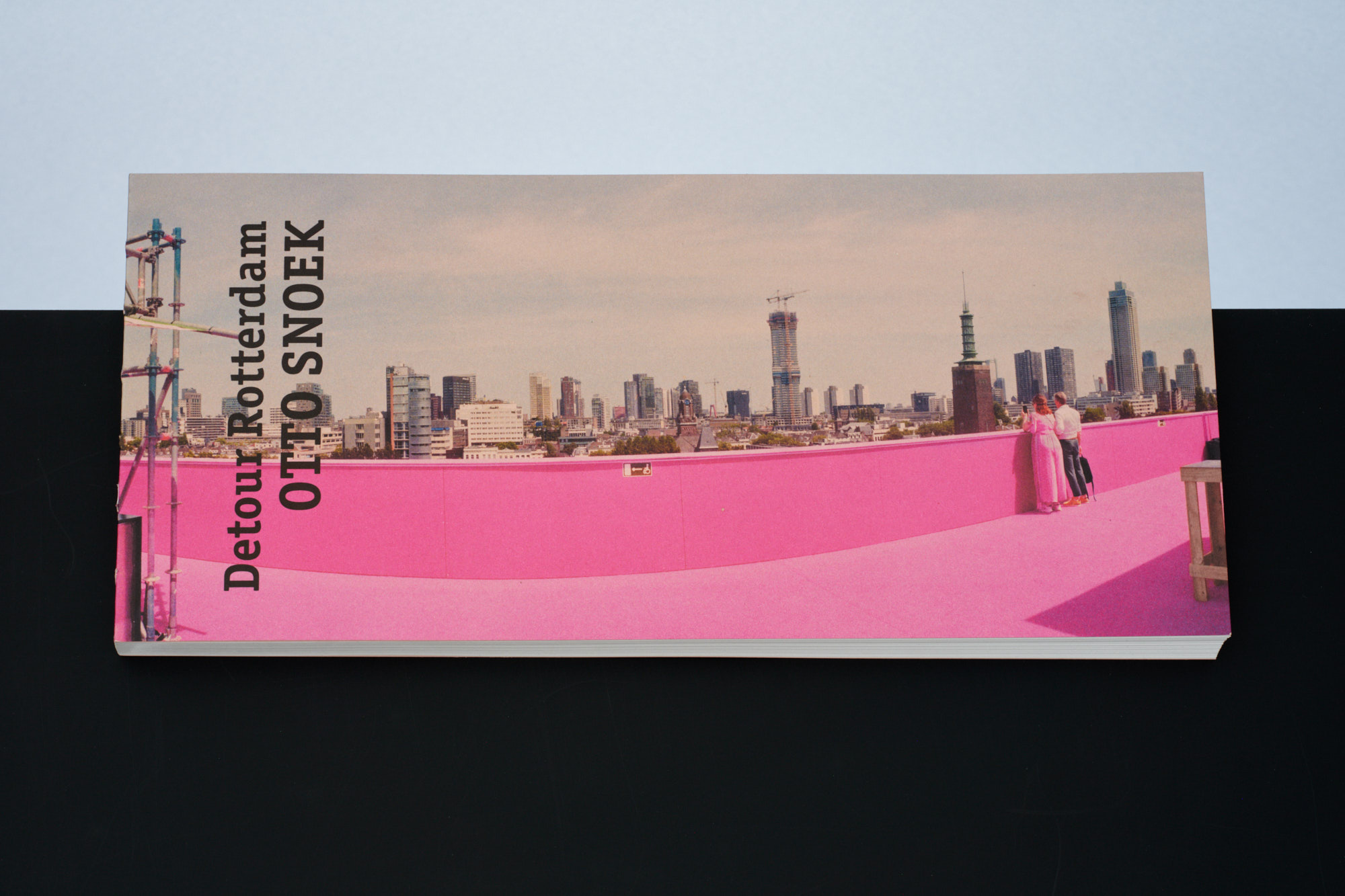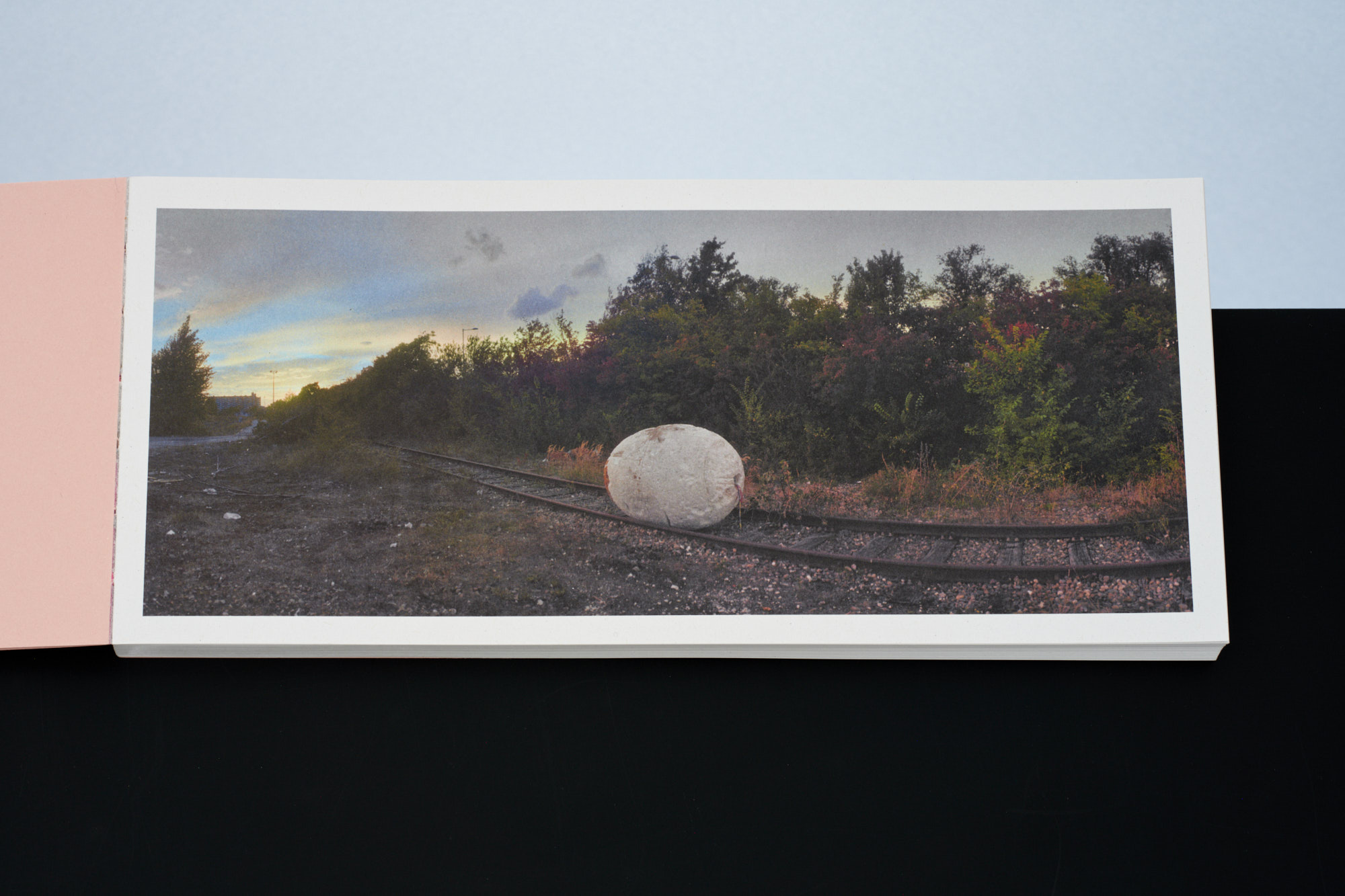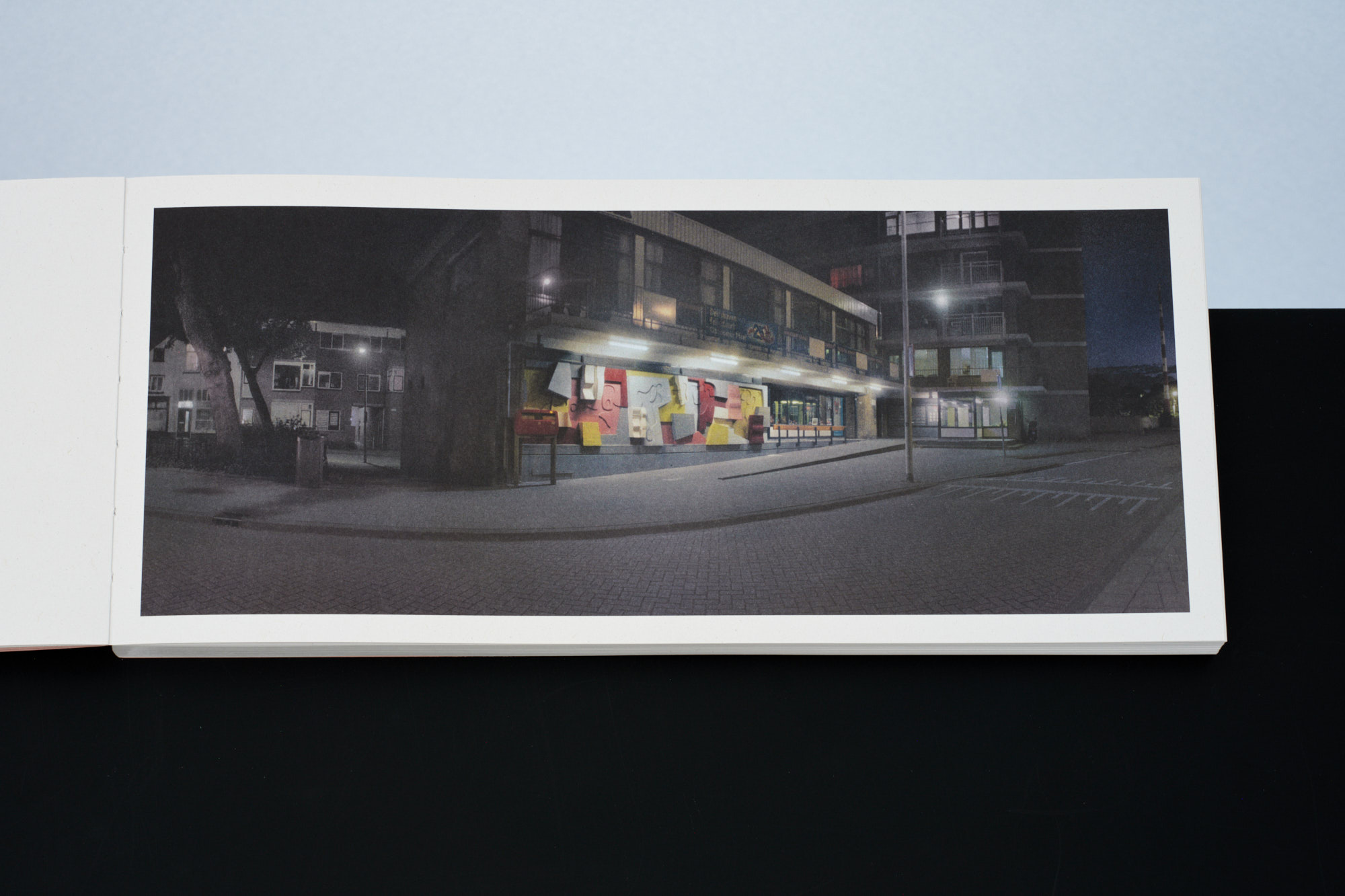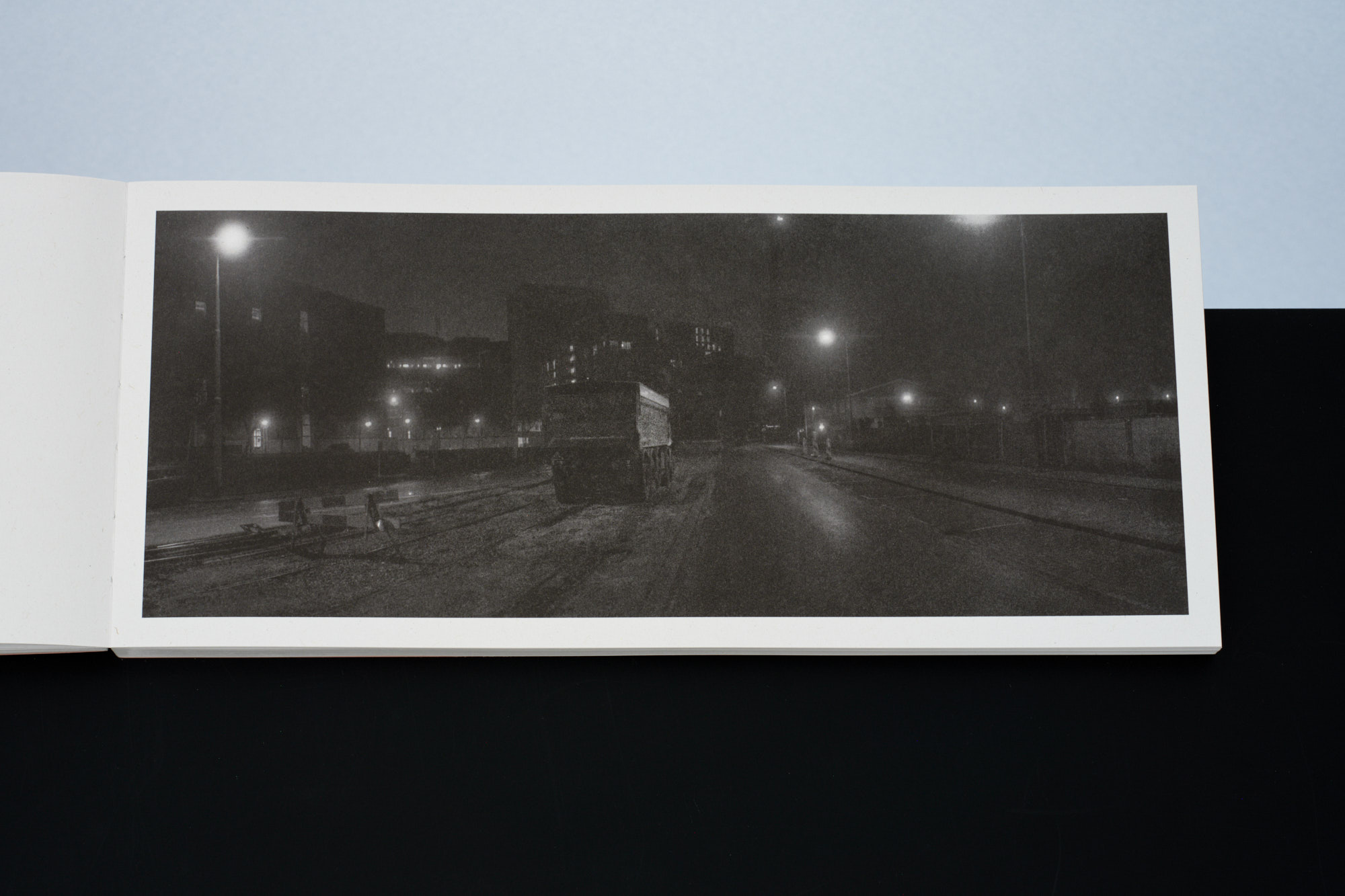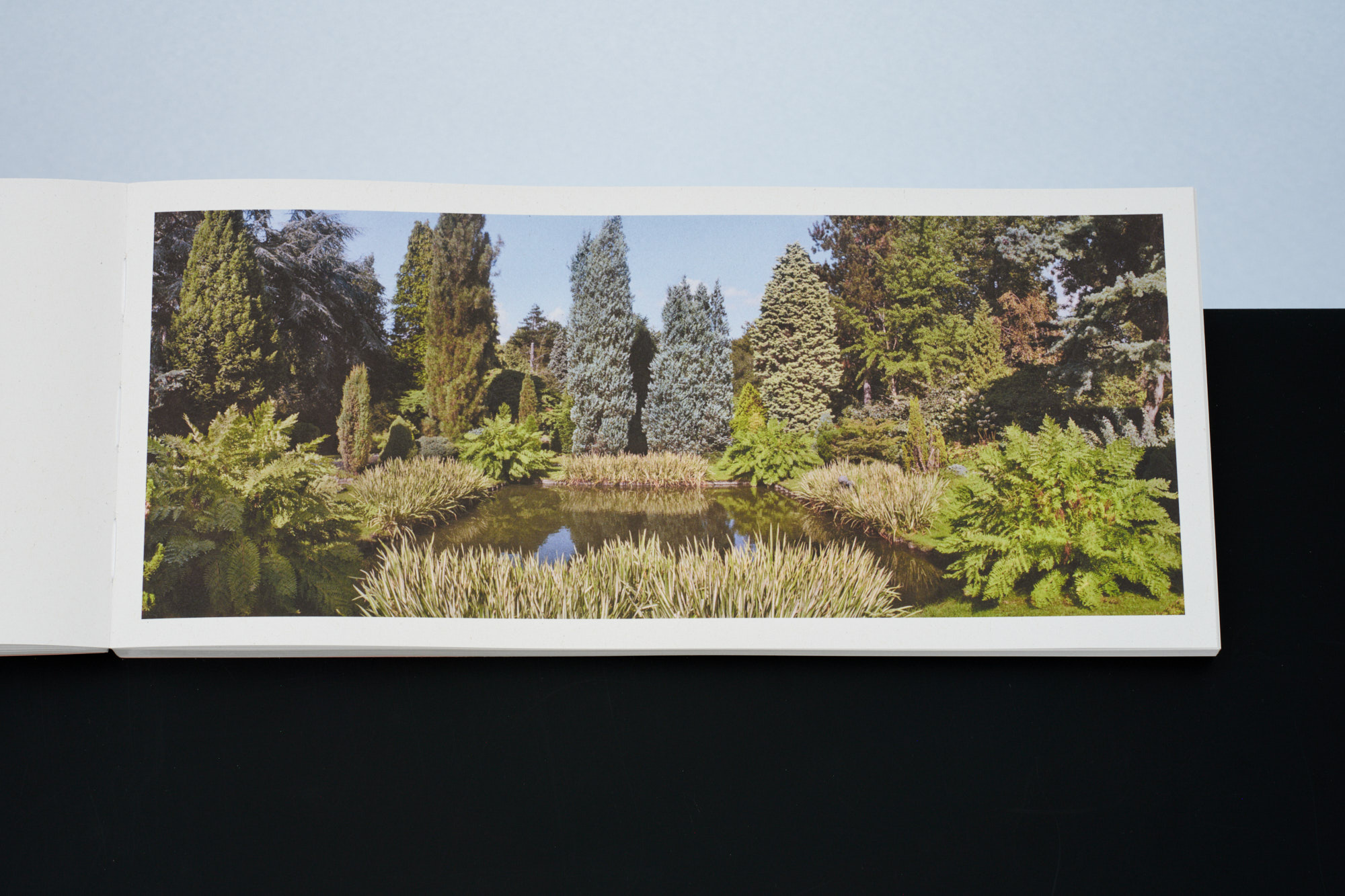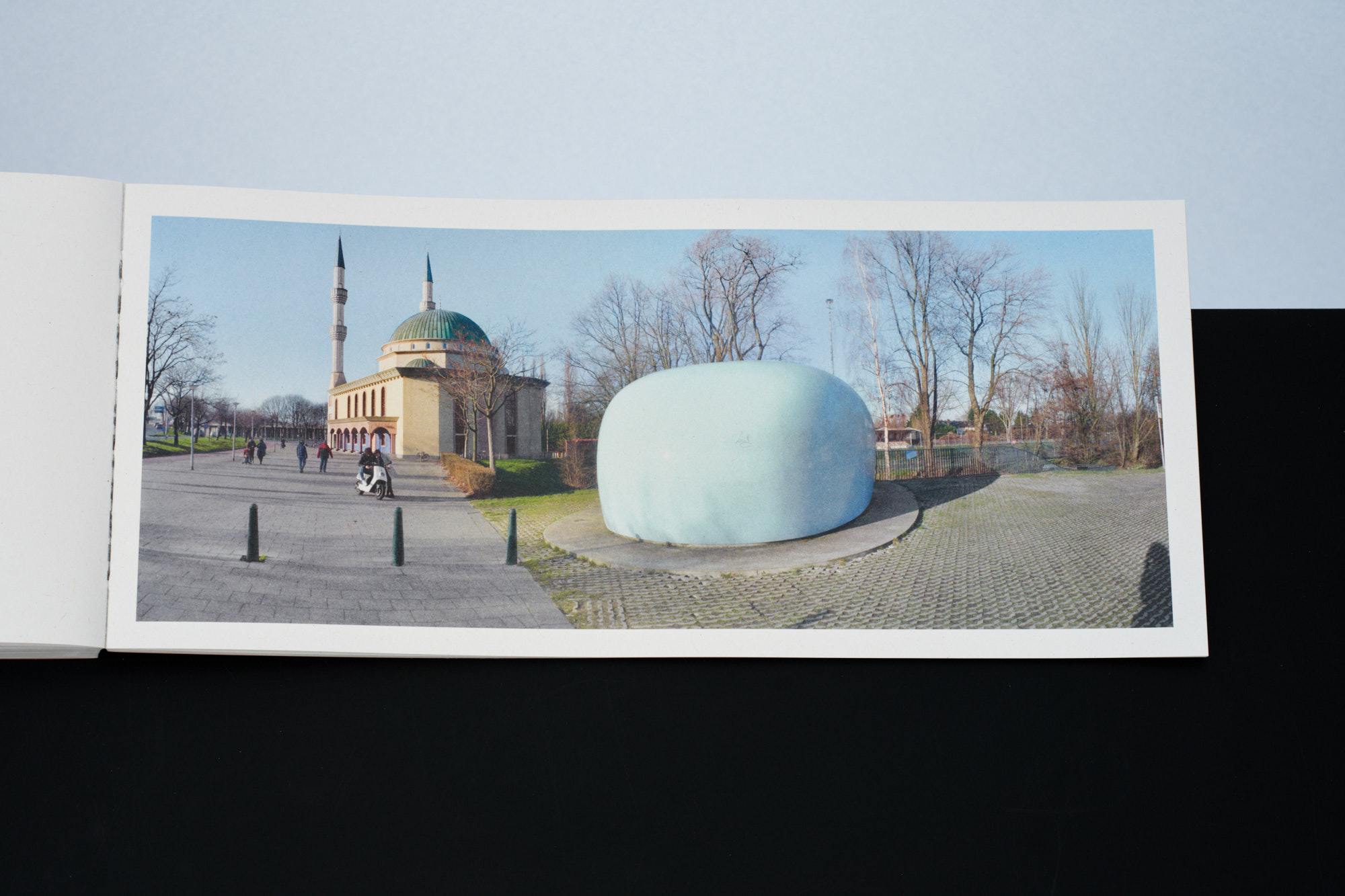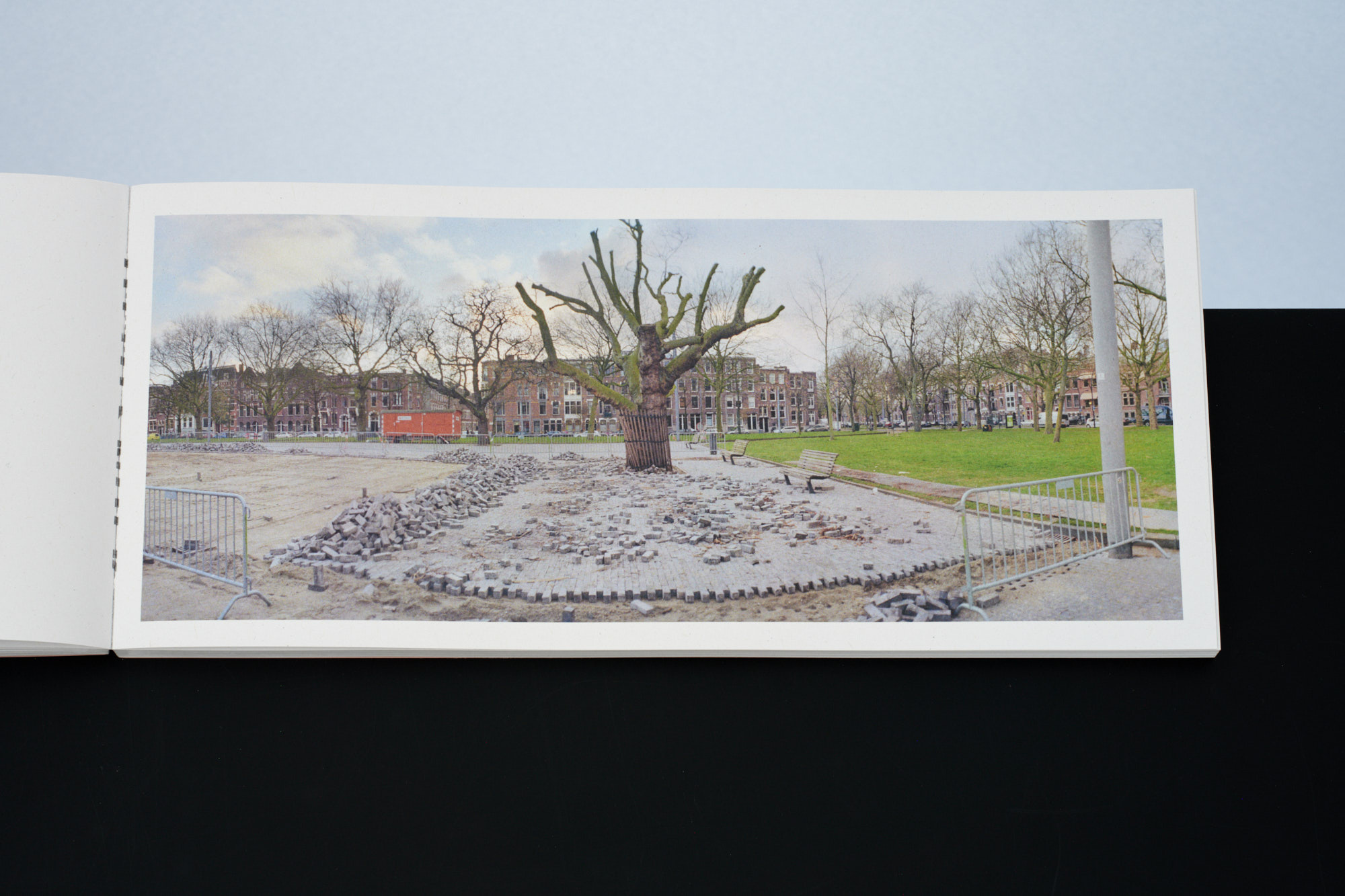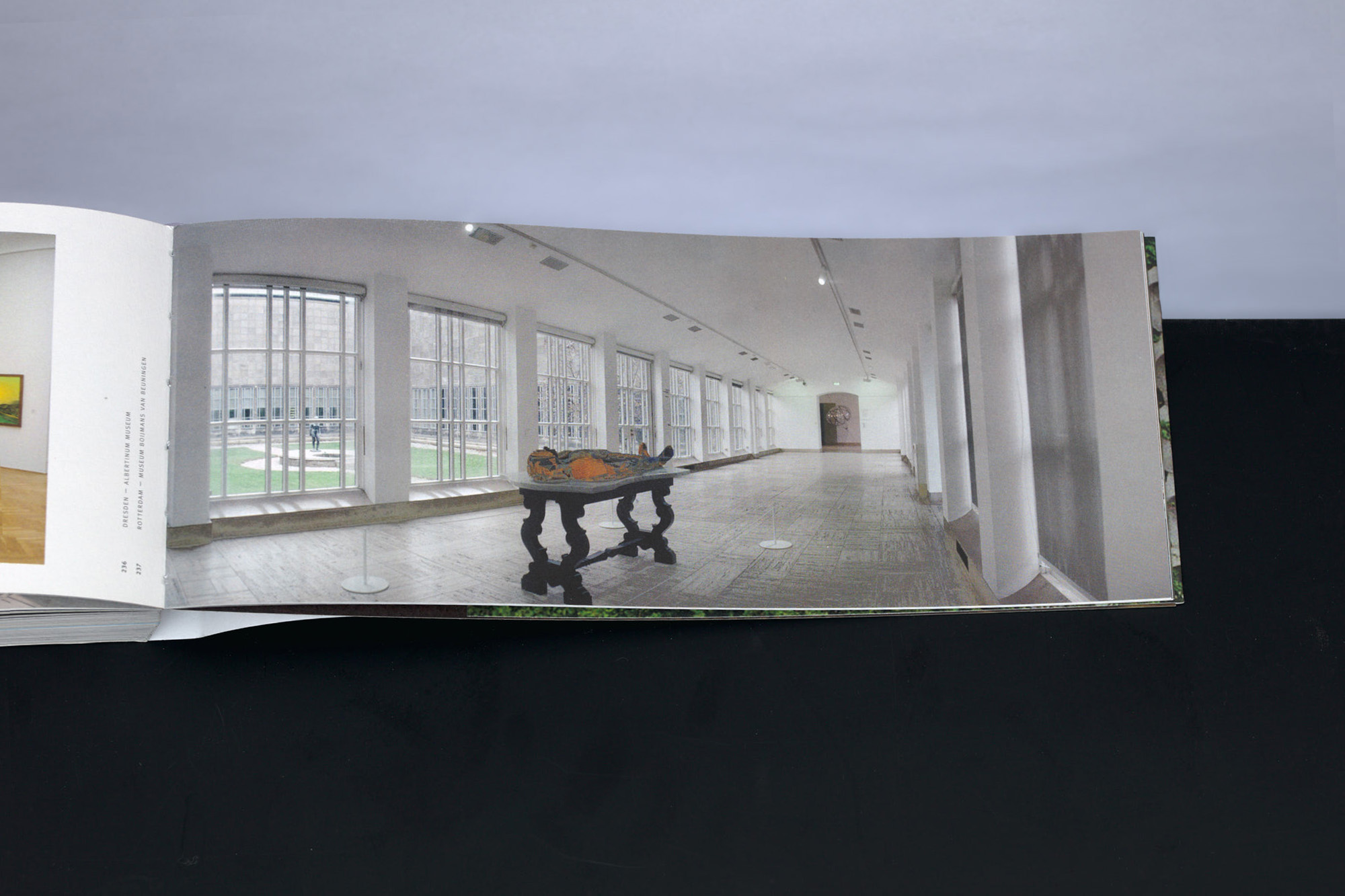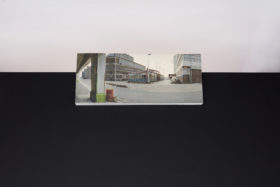Detour Rotterdam / Otto Snoek
The empty city
In a world where freedom of choice is the highest good, the city planning equivalent is intersections. Roads diverge, making room for our lives to intersect and the flow of traffic to be artfully and efficiently managed. So, when car magazine Autovisie ranked road detours the ninth most frustrating aspect of traffic – i.e., not quite as bad as traffic jams or tailgating, but consistently worse than speed limits – it’s hardly a surprise.
And still…the titular detour here is precisely where the magic happens. Detours are a clandestine opportunity to escape the paths laid out for us, to evade coercion. The main arteries and side streets photographed within, uncovered on random road trips through Rotterdam, reveal infinite possibilities. When you wander a city enough, never taking the same turn twice, you’ll wind up discovering its quirks, flaws, and flipside. This ‘detour’ is a kindred spirit of the detournement movement, the subversive journeys across Europe’s metropolises embarked upon by the avant-garde a century ago. Detournement became a means of eluding propaganda pushing how cities should be seen and used.
Likewise, Detour originated from a similar roving which, among others, features infrastructural sites designed for Autovisie readers and other road users; ironically, none of these individuals are pictured here. These are ‘empty’ photographs. And today’s celebrated city of Rotterdam turns morphs into the set of a show whose run has ended, with city life imperceptibly slipping back through the lobby doors. This feeling of desolation is reminiscent of eerie COVID-19 lockdown footage, gloomy, dimly lit feature films, and magical realism-era paintings. Whether intentional or unintentional, all have one thing in common: an unyielding sense of alienation. Bleak and barren cities become hostile environments, anathema to the living. And yet…these cities owe their very existence to the living, designed from the innate longing for a meaningful life.
A city bereft of its people…what does that say about Rotterdam? Make no mistake – this book’s deserted cityscapes hold no promise of blissful emptiness or nostalgic melancholy. No, this Rotterdam is too far a cry from its pervasive city publicity brimming with skyline, attractions, and hashtags. The concept of a modern clockwork city has since been succeeded by cosmopolitan dreams of prosperity. And it was false narratives of this ilk that spurred the avant-garde toward their detournements, albeit in a time when such narratives were notably flimsier. If anything, however, that only makes their critique of manipulation and control more pressing. Rotterdam, a city increasingly designed for the right optics, is the perfect case in point. Trendy canvas prints provide a universally interchangeable backdrop; shopping areas are upgraded with pocket parks while benches surreptitiously disappear to remove the homeless from the scene; design lampposts are plastered with sterker door strijd [Stronger through Struggle] stickers, bolstering the city’s tough image by sloganizing its WWII heritage. But a city that pats itself on the back for a world good to look at? All it promises is pipe dreams.
These photos reveal fields of tension, hazy locations where people pin or pinned their hopes on the fulfillment of a pledge. Streets, tracks, and squares are laid out to reveal a world functionally designed from dreams and longing for a happy and healthy living environment or the ideal visual aesthetic. Detour shows what could be when you set aside all plans and preconceptions. Look again. Now, the ultra-functional city districts and infrastructure are actually a playing field. The photographs are spontaneous snapshots, born of curiosity. And that means they are neither self-evident nor straight-forward: after all, life surely isn’t.
Like the detournements, this book’s journey is a haphazard stroll. You could even construe it as a personal invitation to. It also turns the expectations of Autovisie readers on their head. Just imagine, with no predetermined routes, you also get to ditch the headaches that come with detours and traffic restrictions. By turning left instead of right, or vice versa, you wind up where you never intended. And that could deliver a whole lot more wonder, especially as the cares of everyday life ebb away. In an instant, you see how nature manages to grow around that pond that’s straight as an arrow or spot a giant concrete egg on the railroad tracks – not everything in life is an open-and-shut case. But when you choose your route through the city, you make your life your own.
Sandra Smets
- Year 2024
- Size 135x305 mm oblong
- Colour FC
- Binding otabind
- Pages 144
- Text Sandra Smets
- Concept snoek/van zoetendaal
- Design Willem van Zoetendaal
- ISBN 978-90-72532-59-6


